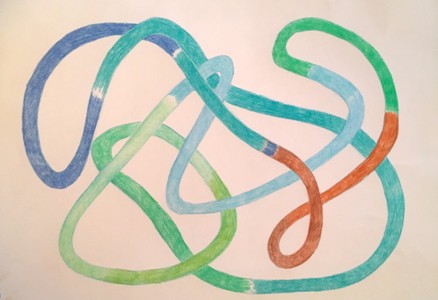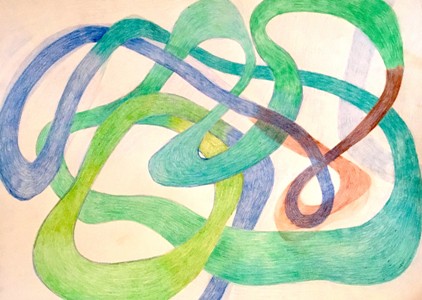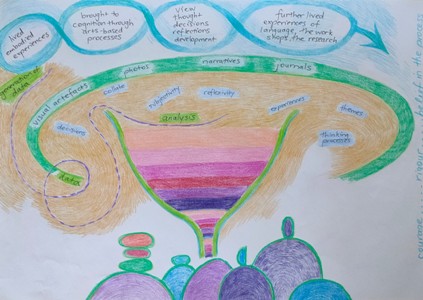The CCRWC is an academic reading group with a difference.
Membership of the CCRWC is open to all UniSA HDR candidates and staff with an interest in creative research practices. Each month, a different group member or special guest selects a reading and designs creative activities based on the reading themes (e.g. prompts for writing, sketching, collage, etc.). When feasible, we co-produce research conference presentations and co-author journal article / scholarly book chapter submissions based on this collaborative work.

by Lyndal Hordacre Kobayashi
In the spirit of Raymond Williams’s 1976 book Keywords (Oxford University Press), “critical” for us indicates a crossroads or turning point, while “creativity” is about innovation and new ways of knowing, especially but not only through arts practices. We also look to and learn from ‘creative critical’ writing practices such as those discussed in Katja Hilevaara and Emily Orley’s The Creative Critic: Writing as/about Practice (Routledge, 2018) and ‘craft-criticism’ as discussed in Janelle Adsit’s Critical Creative Writing: Essential Readings on the Writer's Craft (Bloomsbury, 2018).
Key themes and questions we have explored and continue exploring together include:
- Reciprocities between the critical and creative
- The role the arts may play in responding to crises of our times
- Ecological writing, the Anthropocene, and literature of the environment
- Queer writing, which for us importantly includes acts of queering and queer(y)ing (questioning) conventions of language, signification and arts practices themselves
- Issues of privilege/oppression at the intersections of race, invasion/colonization, gender, sex, sexuality, social class, culture, ability, neurology, age, nationality, spirituality, language, and more
- Ideologies inherent through common cultural metaphors of writing and the arts
- Processes of collaboration and furthering knowledge through the arts

by Lyndal Hordacre Kobayashi
Research team
Amelia Walker, Sophia Booij, Lily Roberts, Stef Rotzitis, Anne Brady-Clark, Evan Jarrett, Chloe Cannell, Dante DeBono, George Martin, Stephanie Daughtry, Kendrea Rhodes, Eugene Tabios, Carina Boehm, Victoria (Tori) Knight, Jemma Cheesman, Caroline Man, Simon-Peter Telford, Heather McGinn, Lyndal Hordacre-Kobayashi, and Alex Dunkin.
Events
Our meetings are held on the final Tuesday of each month, 10am-12noon at UniSA’s Magill Campus. At the end of each year, we hold a series of half-day creative intensives at which we revisit favourite themes from throughout the year to articulate and explore ideas in deeper ways
- ‘Green encounters: critically creative inter/actions with-and-in ecologies of crisis’, published in New Writing: The International Journal for the Practice and Theory of Creative Writing (https://www.tandfonline.com/journals/rmnw20)
- ‘Reimagining the reading group: Critically creative connectivity, care and resilience in academic cultures of challenge and change’, published in Non Traditional Research Outcome (nitro.edu.au)
- Doing collective biography differently by incorporating methods of narrative inquiry, poetic inquiry and performance studies into the analysis of writings-as-data, published in TEXT (scholasticahq.com)
- Introducing Showpony: an inclusive space for cross-arts performance and connection, Published in TEXT (scholasticahq.com)
- Great adaptations: The positive impact of rewriting stories. by Dante DeBono, published in Freilich Project for the Study of Bigotry, Australian National University
- Ecpoetic encounters: manipulating linguistic voice to unsettle anthropocentric assumptions, Published by the Creative People, Products and Places Research Centre (CP3), University of South Australia.

by Lyndal Hordacre Kobayashi
Key contact
Sophia Booij sophia.booij@mymail.unisa.edu.au




